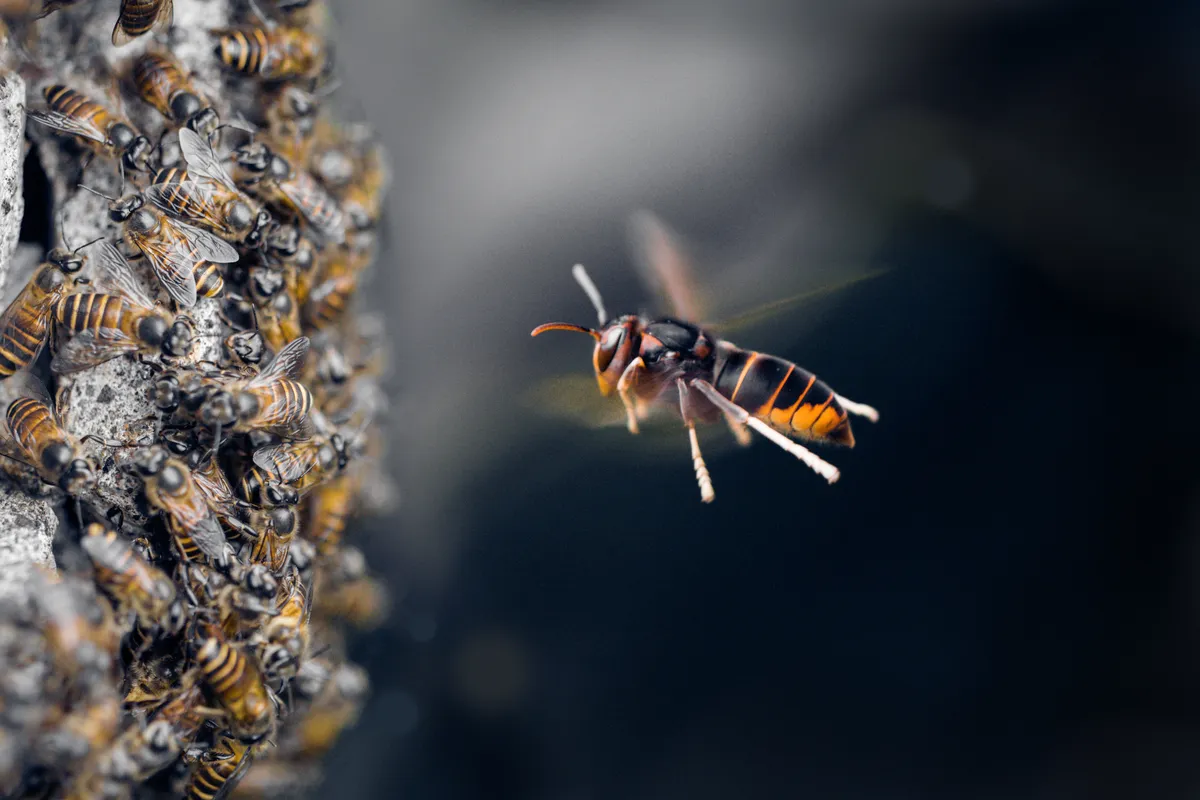Since sightings were first reported in Britain in 2016, volunteers and researchers have worked to battle an invasion of deadly Asian hornets that have been making their way through Europe.
These invasive insects are capable of decimating the UK's native species and are thought to feed on up to fifty honeybees a day. While reports of them remain relatively limited, they have been rising.
But experts at The Wildlife Trusts and Royal Horticultural Society are warning gardeners to watch out for hornet look-a-likes, as the deadly insect also resembles the native hoverfly. Hoverflies are vital pollinators but are now considered endangered, facing threats of pesticide use, urban development and climate change.
Hornet vs hoverfly: what's the difference?
What you might think is a deadly Asian hornet could be a harmless hoverfly disguised as its more fearsome fellow insect. Hoverflies deploy a deceptive survival strategy known as Batesian mimicry. Named after the naturalist Henry Walter Bates, he noted that many species in the Amazon forests had evolved to look more threatening than they actually were to avoid being eaten by predators.
Vicky Hird, insect expert with The Wildlife Trusts, says: “Hoverfly hornet mimics have no sting and are busy pollinating our plants and breaking down organic matter. With so many natural predators, who can blame them for wanting to appear more aggressive than they really are.”
Hornet vs hoverfly: anatomy
Hoverflies have one set of wings, whereas hornets have two sets.
Hornets have five eyes – a compound eye on each side of the head and three simple eyes in between. Hoverflies have two large, round eyes which are prominent from above.
Hoverflies have no stingers but Asian (and European) hornets have long stingers.
Hornet vs hoverfly: size
Hornets are much larger than wasps, reaching up to 4cm in length. Hoverfly hornet mimics reach only around 2cm. Hornets have tiny waists, like wasps, but hoverflies are curvier.
Hornet vs hoverfly: appearance
Both insects feature black and yellow stripes but Asian hornets are predominantly black and have bright yellow legs.

What should I do if I see an Asian hornet?
You should report Asian hornet sightings on the 'Asian Hornet Watch' app or online at nonnativespecies.org. Never disturb a nest or tackle them yourself.
How to encourage hoverflies to your garden
“You can encourage hoverflies into your garden by planting open, easily accessible flowers. In summer, they’ll love blackberry flowers, oxeye daisy, marigold, fennel, cow parsley and poppies. Come autumn, they’ll be seen on heather, aster and even common ivy,” says Helen Bostock, senior wildlife expert at the RHS.
More stories about the environment
- Plastic wet wipes to be banned in Wales
- What would the extended bottom-trawling ban mean for UK wildlife and fishers?
- Singing cicadas return to UK after three-decade absence
- Ancient tree 'older than Stonehenge' found in English bog
Main image: hornet mimic hoverfly. Credit: Frank Porch





